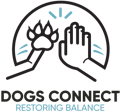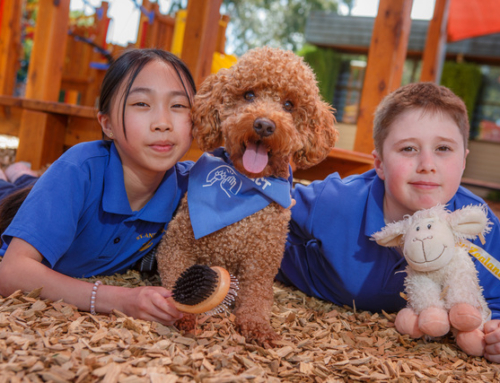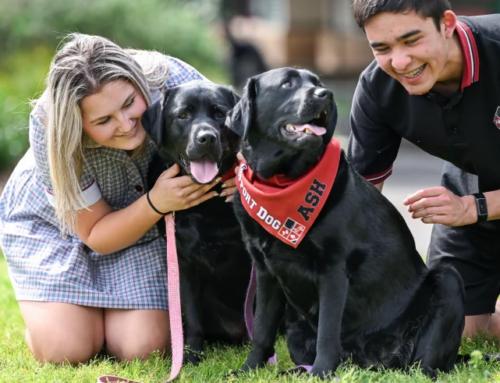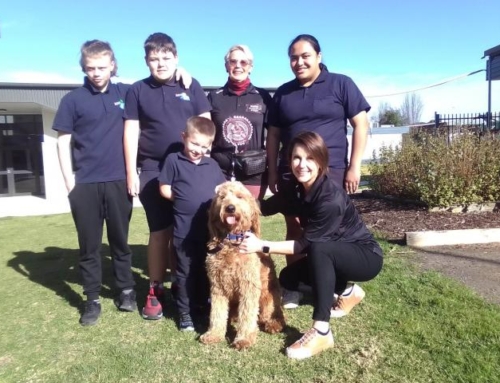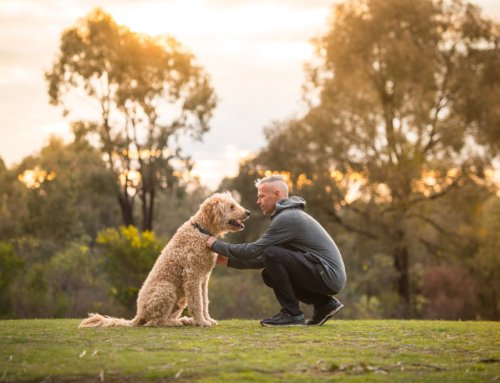Navigating the Challenges: Can Your Wellbeing Dog Truly Relax and Sleep to Recover in a Busy Environment?
In today’s fast-paced world, the demand for emotional support and mental wellbeing has never been higher. Wellbeing dogs, with their innate ability to provide comfort and solace, have become integral members of various environments, including hospitals, schools, and workplaces. However, amidst the constant hustle and bustle of busy environments, it’s crucial to pause and consider: Can your wellbeing dog truly relax and sleep to recover? In this blog, we delve into the intricacies of canine relaxation and recovery in bustling surroundings.
Understanding the Role of Wellbeing Dogs
Wellbeing dogs are introduced into a workplace to provide emotional support and comfort to individuals facing stress, anxiety, or other mental health challenges. Their calming presence and unconditional love can have a profound impact on the wellbeing of those around them. However, ensuring that these dogs themselves can relax and recover is essential for their overall health and effectiveness in their role.
The Importance of Sleep and Recovery
Just like humans, dogs require adequate sleep and downtime to rest and recover. Sleep plays a crucial role in physical and mental health, allowing the body to repair and recharge. However, in a busy environment filled with noise, activity, and social interaction, achieving restful sleep can be challenging for wellbeing dogs.
Sensory Overload
Busy environments are often filled with sensory stimuli that can disrupt sleep and relaxation. Loud noises, bright lights, and constant movement can prevent your wellbeing dog from settling down and entering a state of restorative sleep. Pay attention to your dog’s behaviour – signs of agitation or restlessness may indicate that they are struggling to unwind amidst the chaos.
Social Demands
Wellbeing dogs are frequently the centre of attention in busy environments, with individuals seeking comfort and companionship from them. While many dogs enjoy social interaction, others may find it draining, particularly if they are constantly approached by strangers or subjected to unwanted attention. Ensure that your dog has opportunities for solitude and relaxation away from the crowds.
Creating a Safe Haven
Providing your wellbeing dog with a quiet retreat where they can escape from the hustle and bustle is essential for promoting relaxation and sleep. This should be a designated quiet room with either a cosy corner with a comfortable bed or a crate set up for them to use where they can retreat when they need a break. Make sure the environment is free from distractions and noise to facilitate restful sleep and provide them with some favourite toys, possibly something to safely chew on for enrichment (no bones or anything of equal high value to prevent any resource guarding concerns) and a water bowl.
Establishing Boundaries
Setting clear boundaries around your wellbeing dog’s role and interactions is crucial for ensuring their wellbeing. Educate colleagues and visitors about appropriate behaviour around the dog, and establish guidelines and set times for when your dog is ‘off-duty’ and needs time to relax and recharge. Respect your dog’s need for personal space and downtime, and advocate for their wellbeing when necessary.
Training and Conditioning
Proper training and conditioning can help prepare your wellbeing dog to cope with the demands of a busy environment. Teach your dog relaxation techniques and provide opportunities for them to practise settling down amidst distractions. Gradually expose them to increasing levels of stimulation, allowing them to acclimate and adapt over time.
Monitoring and Adaptation
Continuously monitor your wellbeing dog’s behaviour and wellbeing in the busy environment, and be prepared to adapt as needed. If you notice signs of stress or exhaustion, such as excessive panting, pacing, or irritability, take steps to address the underlying cause. This may involve providing additional breaks, adjusting their schedule, or limiting their exposure to certain stimuli.
Seeking Professional Guidance
If your wellbeing dog consistently struggles to relax and sleep in a busy environment, please seek guidance from Dogs Connect. We can assess your dog’s individual needs and develop a tailored plan to help them cope with the demands of their role. In some cases, adjustments to their environment or even reduction of attendance may be necessary to ensure their wellbeing.
While wellbeing dogs play a valuable role in providing comfort and support in busy environments, it’s essential to prioritise their own relaxation and recovery. By understanding the challenges they face and taking proactive steps to address their needs, you can ensure that they continue to thrive and have a positive impact on the wellbeing of others. After all, a healthy and relaxed wellbeing dog is an essential element that helps lay the foundation for authentic connection.
Dogs Connect are always here for further advice and information, please reach out to us if you have any questions.
